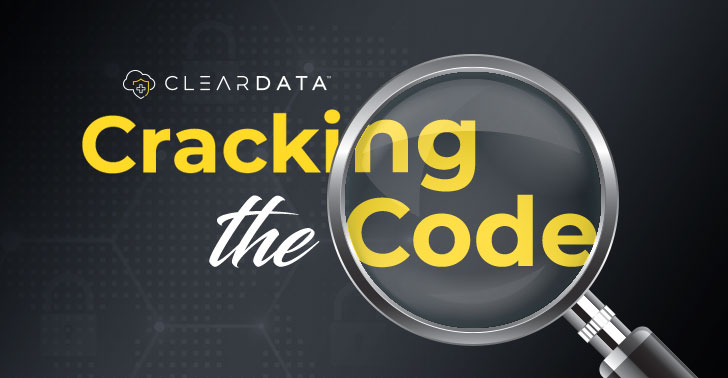Navigating Healthcare Compliance – Your Comprehensive Guide
Imagine you’re about to embark on a road trip. You’ve packed your snacks, prepared your playlist, and mapped your route. But wait—suddenly you can’t remember when you last got your vehicle serviced. Just as you wouldn’t hit the road without checking your brakes or updating your insurance, healthcare organizations must address and navigate the winding roads of compliance to avoid major roadblocks.
For your business, ensuring healthcare compliance isn’t just a box to tick—it’s your GPS, guiding you safely through potential pitfalls and ensuring a smooth, secure journey to innovation. Whether you’re a seasoned traveler in the cloud or just starting your journey, understanding the twists and turns of compliance risks remains essential. Buckle up, because we’re about to explore the best strategies to keep your healthcare cloud environment compliant, secure, and ready for the road to innovation.
Navigating Healthcare Compliance Risks in the Cloud

Why Does Healthcare Compliance Seem So Strict?
Healthcare organizations face unique compliance challenges that require a deep understanding of specific regulatory requirements. Compliance is a vital part of keeping patient information secure and maintaining trust. But why does the healthcare industry face such stringent requirements? Let’s dive into some of the reasons below.
First and Foremost: Protecting Sensitive Patient Data and Patient Safety
Let’s face it—you’ve probably been affected in some way by a financial data compromise, whether your account was part of a larger data leak, or your identity was stolen. The headache of altering passwords, revising account details, and liaising with the bank can be exhausting.
Now…imagine if someone got a hold of your medical records. It’s more than a headache, it’s a nightmare. What’s worse: You can’t change your medical history like you can change your passwords.
Healthcare organizations manage a treasure trove of sensitive information, from medical histories to personal identification. Compliance regulations like HIPAA and GDPR are in place to ensure this data stays secure, protecting you from identity theft and unauthorized access that can jeopardize patient safety and privacy.
Maintaining Trust in Healthcare Services
Trust is the glue that holds the patient-provider relationship together. Compliance guidelines are more than just rules; they’re commitments to ethical practices and patient welfare. When healthcare organizations adhere to these standards, they foster confidence among patients, assuring them that their information is secure and their care is top-notch.
What are the Risks of Non-Compliance in Healthcare?
Non-compliance can lead to serious consequences, including data breaches and hefty legal penalties. Imagine a data breach exposing your personal health information—it’s a nightmare scenario. Legal fines for non-compliance aren’t just expensive; they can disrupt operations and damage reputations. Staying compliant is crucial to avoid these pitfalls.
How do the Experts Manage Healthcare Compliance Risks?
Navigating the healthcare compliance landscape requires a strategic approach and expert insights. Industry leaders and compliance specialists suggest the following key strategies:
1. Compliance Is a Journey, Not a Destination
Compliance is not a one-time effort but a continuous process that requires regular updates and assessments. This approach ensures that healthcare organizations remain vigilant and adaptive to new threats and regulatory changes. Proactivity helps identify and rectify compliance drift before it becomes a significant issue.
“You must continue to conduct risk assessments, train employees, and update policies and procedures to reflect what you are doing to meet the seven fundamental compliance elements.”
— Marc Haskelson, President and CEO of Compliancy Group
2. Leverage Industry-Specific Healthcare Compliance Solutions
Utilizing healthcare-native compliance solutions can significantly reduce the complexity of managing compliance. These solutions are specifically designed to meet the unique requirements of healthcare data protection and can automate many compliance tasks. By utilizing these tools, healthcare organizations can have peace of mind knowing that their data is secure and their compliance efforts are in good hands.
3. Engage Healthcare Compliance Experts
Accessing compliance experts who understand the intricacies of healthcare regulations can be invaluable. These professionals can provide tailored advice, assist with risk assessments, and help design compliant cloud architectures. If you’re a healthcare leader managing sensitive healthcare information in the cloud, consider implementing some of the following strategies.
Actionable Steps for Healthcare Leaders

Data Encryption and Access Controls
Ensuring that all patient data is encrypted both in transit and at rest is a fundamental requirement of HIPAA. Additionally, stringent access controls must be in place to ensure that only authorized personnel can access sensitive data.
Security Risk Analysis
The primary goal of a security risk analysis is to protect patient data from breaches, unauthorized access, and other security threats. By systematically evaluating the security measures in place, healthcare organizations can ensure that ePHI remains confidential, available, and integral.
“Look at the statistics of HIPAA violations and fines. You can trace an overwhelming majority of them directly to the failure to conduct or complete a security risk analysis… It is an essential part of building the case that an organization is making a good faith effort to comply with the HIPAA laws.”
— Liam Degnan, Director of Strategic Initiatives at Compliancy Group
Incident Response Planning
A robust incident response plan is crucial for addressing any data breaches or compliance violations swiftly. This plan should include clear protocols for identifying, reporting, and mitigating incidents to minimize their impact.
Develop a Comprehensive Compliance Strategy
A well-defined compliance strategy should outline the specific regulatory requirements, the steps needed to meet these requirements, and the tools and resources required for implementation. This strategy should also include a timeline for regular audits and assessments.
Conduct Regular Employee Training and Foster a Culture of Compliance
Ensuring that all employees are aware of compliance regulations and their role in maintaining compliance is critical. Regular training sessions can help instill a culture of compliance within the organization.
“We don’t see quality as just a clinical goal. It’s an enterprise wide priority that encompasses customer service, compliance and wellness.”
— Anthem CEO
Partner with Cloud Providers with Healthcare Experts
Collaborating with cloud providers who specialize in healthcare operations brings unique benefits, such as access to industry-specific expertise and tailored solutions. These partnerships can significantly streamline compliance efforts.
Looking Ahead
Your compliance journey is not just about meeting regulatory requirements but also about upholding values and promoting positive outcomes for patients and the industry. Navigating compliance risks in the healthcare cloud is a complex but essential task. However, your road ahead doesn’t have to be a bumpy one. By addressing compliance head on, your healthcare organization can enhance your operational efficiency, safeguard patient data, and maintain trust with your customers and patients. Ready to take the next step in securing your healthcare cloud environment?
Contact us today to learn how our experts can help you navigate healthcare compliance in the cloud.
Unlock the power of a Healthcare Security and Compliance Expert Today.



